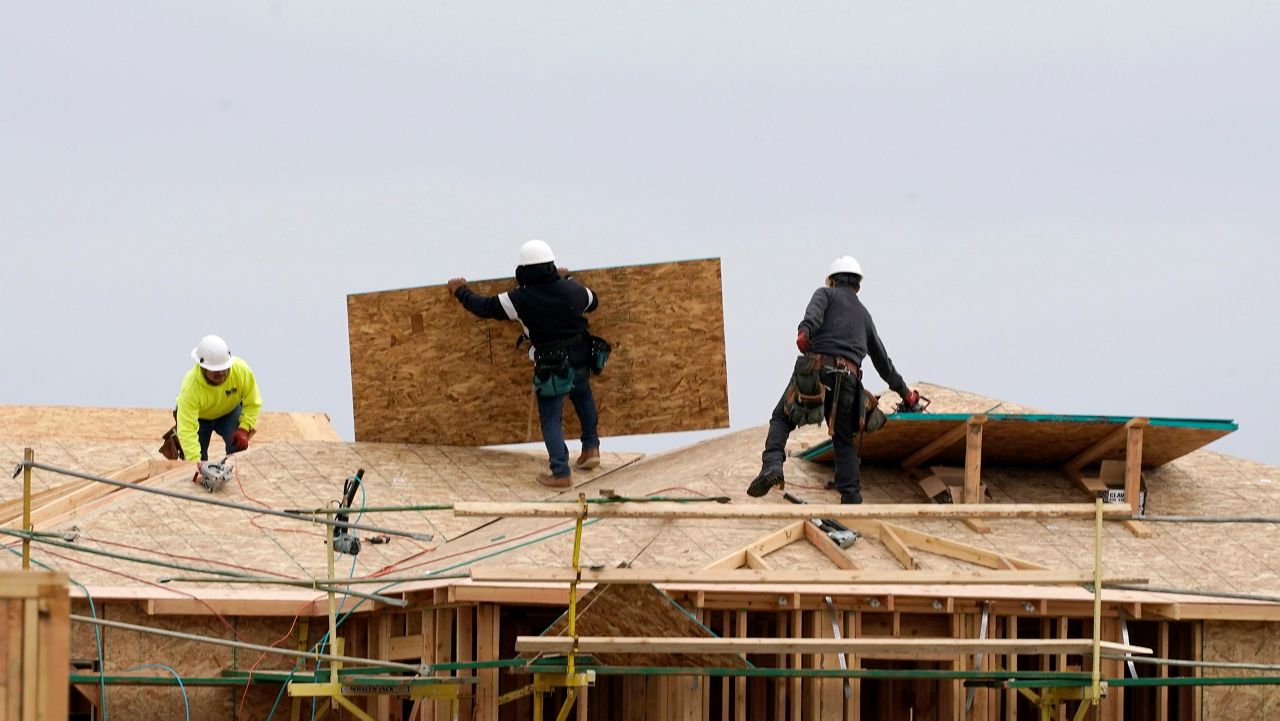LOS ANGELES (CNS) — Major reforms are needed to increase housing production in the city of Los Angeles to meet a goal of producing more than 450,000 units by 2029, according to a new report released Thursday by the Los Angeles Business Council.
What You Need To Know
- "Unless housing production is accelerated significantly, the RHNA goals will certainly not be met," the study said
- The city of Los Angeles would need to complete 57,000 units a year on average, compared to less than 9,000 units annually last decade, to meet its goal
- "This study clearly indicates that we need to streamline the approval process if we want to meet our housing goals," said Council President Paul Krekorian in a statement
- On average, housing projects took 3.9 years to be permitted and built. The study showed it took 1.5 years just for the approval process
The report authored by UCLA and California State University Northridge examined how the long and complex housing development process has contributed to the city's failure to keep pace with housing needs. According to California's Regional Housing Needs Assessment (RHNA), the city must add approximately 456,643 units from 2021 to 2029, which is a five-fold increase over the 83,865 units produced from 2010 to 2019.
"Unless housing production is accelerated significantly, the RHNA goals will certainly not be met," the study said.
The city of Los Angeles would need to complete 57,000 units a year on average, compared to less than 9,000 units annually last decade, to meet its goal.
Researchers found that expanding policies for affordable housing, such as Mayor Karen Bass' Executive Directive No. 1 to accelerate affordable housing, raising the Site Plan Review threshold from 50 to 200 units, and increasing the use of master planning, among other reforms, would significantly boost housing production.
"This study clearly indicates that we need to streamline the approval process if we want to meet our housing goals," said Council President Paul Krekorian in a statement.
Krekorian noted the City Council is moving in that direction, citing a recent action by the Planning Commission to approve his motion to amend the Site Plan Review for affordable housing projects, and for mixed-use and mixed- income projects with a substantial affordable housing component.
The study analyzed every multi-family housing project that was permitted in Los Angeles from 2010 to November 2022 and found that speeding up the rate of new housing and reducing discretionary approvals would have resulted in thousands of more units.
On average, housing projects took 3.9 years to be permitted and built. The study showed it took 1.5 years just for the approval process.
"This study provides a unique empirical basis for ongoing policy reform focused on increased transparency, efficiency, and certainty that will shorten approval times and materially address the egregious lack of affordable and market-rate housing," the study's co-author Stuart Gabriel said in a statement.
The report found that discretionary reviews added a "significant amount of uncertainty" and had an impact on lengthening development time. For example, the Planning Commission review added six months to the approval process, Site Plan Review added more than three months, and Environmental Impact Reports added 16 months.
"This study corroborates what we've heard from housing providers — that uncertainty and a lack of clear set of rules to build housing in Los Angeles have hindered our ability to increase our housing stock," Councilwoman Nithya Raman, chair of the council's Housing and Homelessness Committee, said in a statement.
"We need significant reform in order to meet our housing and affordability goals and truly tackle the city's housing crisis."



